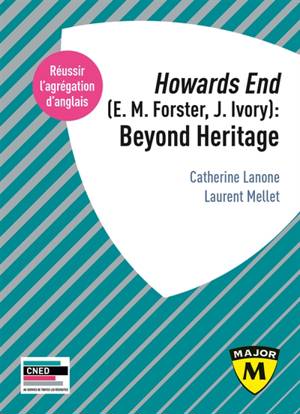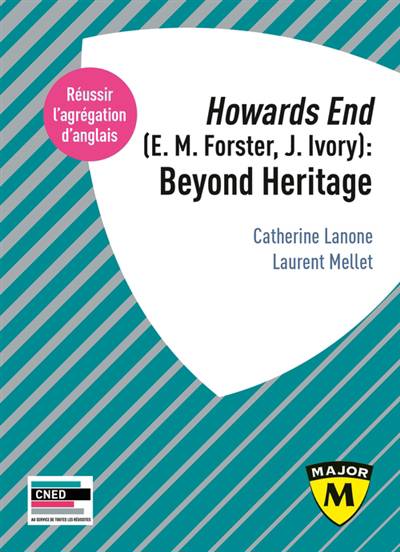
- Afhalen na 1 uur in een winkel met voorraad
- Gratis thuislevering in België vanaf € 30
- Ruim aanbod met 7 miljoen producten
- Afhalen na 1 uur in een winkel met voorraad
- Gratis thuislevering in België vanaf € 30
- Ruim aanbod met 7 miljoen producten
Howards End (E.M. Forster, J. Ivory)
beyond heritage
Catherine Le, Laurent MelletOmschrijving
Howards End (E. M. Forster, J. Ivory) : Beyond Heritage
Reading Forster's novel and Ivory's film together gives a stunning opportunity to re-assess the representation of Pre-World War One modernity. Far from presenting Edwardian England as a golden period, Howards End explores social structures, social mobility, real estate, the ambivalent relation to culture and new technological modes of communication and transport. Stylistically, the novel breaks new ground with its Protean narrative voice, and transitions towards Modernism with its mythic, musical method. The eponymous house becomes a metaphor for ecological balance, a new kind of extended family structure, a network of connections and a new sense of community. If Howards End as a novel reinvents literary legacy and redefines personal and national heritage, Ivory's adaptation must also be reassessed as so-called heritage cinema, far from the clichés of a purely aesthetic approach. It is no period piece or marketable commodity meant to toe a conservative line, but a carefully woven creative transposition, which also raises social and gendered questions.
Specificaties
Betrokkenen
- Auteur(s):
- Uitgeverij:
Inhoud
- Aantal bladzijden:
- 195
- Taal:
- Frans, Engels
Eigenschappen
- Productcode (EAN):
- 9791035808884
- Verschijningsdatum:
- 16/10/2019
- Uitvoering:
- Paperback
- Afmetingen:
- 150 mm x 200 mm
- Gewicht:
- 248 g

Alleen bij Standaard Boekhandel
Beoordelingen
We publiceren alleen reviews die voldoen aan de voorwaarden voor reviews. Bekijk onze voorwaarden voor reviews.











